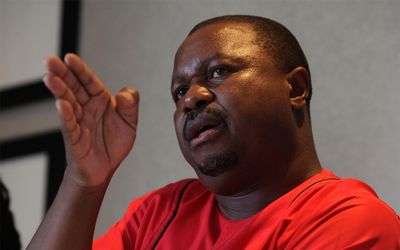New education alliance formed in KwaZulu-Natal
by Nce Mkhize,
2014-01-23 06:40:25.0
TEACHERS’ unions, student organisations and parents in KwaZulu-Natal on Wednesday established an alliance to help improve education in the province.
Last year, there were several disruptions, go-slows and strikes, ranging from demands for better pay for grade R teachers and reimbursement of monies deducted in line with the no-work, no-pay principle during the 2010 public service strike.
Despite the challenges the province was able to achieve a 78.2% matric pass rate, a 4% improvement on the previous year.
The South African Democratic Teachers Union (Sadtu), the Congress of South African Students, the South African Student Congress, the National Association of School Governing Bodies and the South African National Civic Organisation formed the alliance in Durban after weeks of discussion.
Sadtu provincial secretary Mbuyiseni Mathonsi said the coalition would work with the provincial education department to identify and sort out problems such as shortages of teachers, incentives for rural-based teachers and getting the relevant infrastructure to the struggling schools.
"The alliance is confident about the progress made by our South African education system as reflected in both the Annual National Assessment and the improvement in last year’s matric results.
One of the concerns of the coalition was that higher education institutions did not have the capacity to absorb all new matriculants. "It is our view that most South African universities are still elitist, concentrated in the city centres and away from where the majority of matric pupils are," Mr Mathonsi said.
Reginald Chiliza of the school governing bodies’ association hoped the alliance would help improve communication between parents, unions and the department.
Parents were not consulted when negotiations between the education department and the unions broke down, Mr Chiliza said.
"We hope that this alliance will be a platform where we can engage with both the unions, the department and the student representatives so that we can solve disputes before they get out of hand.
"We are also concerned about the high number of pregnancies in schools, bullying among children, assaults on teachers as well as teachers who are not dedicated to their work. We wish that the department can embark on campaigns to stop all these ills," said Mr Chiliza.
Alan Thompson, vice-president of the National Teachers Union, did not expect improvement as the organisations had already been working together under the African National Congress.
"We don’t think that they will come up with anything new. The problems of education needs to be dealt with comprehensively so that lasting solutions can be found," Mr Thompson said.
"We don’t think this so-called alliance will be able to facilitate this and we think that the problems that are facing education in this province will persist."

Sadtu KwaZulu-Natal secretary Mbuyiseni Mathonsi. Picture: SOWETAN
TEACHERS’ unions, student organisations and parents in KwaZulu-Natal on Wednesday established an alliance to help improve education in the province.
Last year, there were several disruptions, go-slows and strikes, ranging from demands for better pay for grade R teachers and reimbursement of monies deducted in line with the no-work, no-pay principle during the 2010 public service strike.
Despite the challenges the province was able to achieve a 78.2% matric pass rate, a 4% improvement on the previous year.
The South African Democratic Teachers Union (Sadtu), the Congress of South African Students, the South African Student Congress, the National Association of School Governing Bodies and the South African National Civic Organisation formed the alliance in Durban after weeks of discussion.
Sadtu provincial secretary Mbuyiseni Mathonsi said the coalition would work with the provincial education department to identify and sort out problems such as shortages of teachers, incentives for rural-based teachers and getting the relevant infrastructure to the struggling schools.
"The alliance is confident about the progress made by our South African education system as reflected in both the Annual National Assessment and the improvement in last year’s matric results.
One of the concerns of the coalition was that higher education institutions did not have the capacity to absorb all new matriculants. "It is our view that most South African universities are still elitist, concentrated in the city centres and away from where the majority of matric pupils are," Mr Mathonsi said.
Reginald Chiliza of the school governing bodies’ association hoped the alliance would help improve communication between parents, unions and the department.
Parents were not consulted when negotiations between the education department and the unions broke down, Mr Chiliza said.
"We hope that this alliance will be a platform where we can engage with both the unions, the department and the student representatives so that we can solve disputes before they get out of hand.
"We are also concerned about the high number of pregnancies in schools, bullying among children, assaults on teachers as well as teachers who are not dedicated to their work. We wish that the department can embark on campaigns to stop all these ills," said Mr Chiliza.
Alan Thompson, vice-president of the National Teachers Union, did not expect improvement as the organisations had already been working together under the African National Congress.
"We don’t think that they will come up with anything new. The problems of education needs to be dealt with comprehensively so that lasting solutions can be found," Mr Thompson said.
"We don’t think this so-called alliance will be able to facilitate this and we think that the problems that are facing education in this province will persist."






















Post a comment